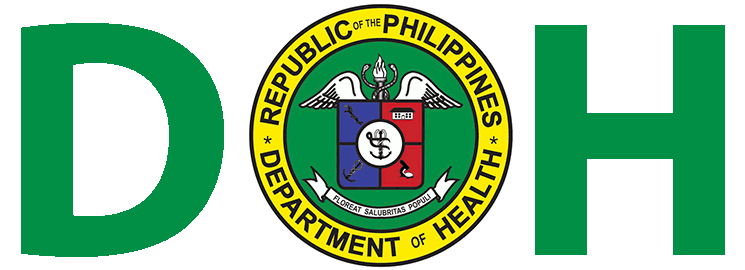About this Toolkit
This toolkit presents the tools, templates, and steps in mentoring supervisors of community health volunteers (CHV) in TB Program Implementation. The tools and templates in this toolkit were developed based on the collective experience of local government partners of the IMPACT Project.
For whom is this toolkit?
This toolkit is intended for three types of audience. The first is the Rural Health Physician and Public Health Nurse in the rural health units (RHUs) as immediate supervisors and first level mentors of the CHV supervisors. The secondary users are the CHV supervisors as mentors for their CHVs. The third group of users are the NTP coordinators and technical staff of provincial health offices (PHOs), city health offices (CHOs) of highly urbanized cities (HUCs) who serve as technical assistance providers for RHUs/CHOs.
What does this toolkit contain?
This toolkit consists of two parts.
Part 1 provides the background and rationale for mentoring supervisors of community health volunteers in TB Program Implementation.
Part 2 describes the recommended steps for the mentoring process as well as the tools and templates prepared by the IMPACT project for this purpose.
Users of this toolkit may reproduce the tools and templates, including the PowerPoint Presentations provided in this package.
go to the TA package Close windowAbout this Toolkit
This toolkit presents the tools, templates, and steps in conducting the Workshop on Strengthening PMDT Case Finding, Case Holding and Referral System in support of the tuberculosis (TB) control program. The tools and templates in this toolkit were based on the collective experiences of local government partners of the IMPACT Project.
For whom is this toolkit?
This toolkit is intended primarily for NTP staff at the Department of Health (DOH) regional offices who are assigned to provide technical assistance to provinces and highly urbanized cities (HUCs), and also for DOH Health Development Management Officers (DMOs) and Provincial/City Health Office NTP team members assigned to conduct the Workshop on Strengthening PMDT Case Finding, Case Holding and Referral System in the province or HUC.
What does this toolkit contain?
This toolkit consists of a manual explaining the background and rationale for the Workshop on Strengthening PMDT Case Finding, Case Holding and Referral System, and the step-by-step guide for conducting the workshop.
Users of this toolkit may reproduce the tools and templates, including the PowerPoint presentations, provided in this package.
go to the TA package Close windowAbout this Toolkit
This toolkit presents the tools, templates, and steps in conducting data quality check in support of the tuberculosis (TB) control program. The tools and templates in this toolkit were developed based on the collective experiences of local government partners of the IMPACT Project.
For whom is this toolkit?
This toolkit is intended primarily for NTP staff at the Department of Health (DOH) regional offices who are assigned to provide technical assistance (TA) to provinces and highly urbanized cities (HUCs), and also for the DOH Development Management Officers (DMOs) and Provincial/City Health Office NTP team members involved in data quality check (DQC).
What does this toolkit contain?
This toolkit consists of two parts.
Part 1 provides the background information and rationale for conducting data quality check in support of the TB control program and explains the step-by-step process for performing such.
Part 2 contains the DQC Workshop Activity Design; the WHO Routine Data Quality Assessment (RDQA) procedures; the recommended automated system checks in ITIS; the forms used for the DQC workshop; and the abstract and technical report on the Pilot Run of the WHO RDQA Methodology provided in the annex.
Users of this toolkit may reproduce the tools and templates, including the PowerPoint presentations provided in this package.
go to the TA package Close windowAbout this Toolkit
This toolkit presents the tools, templates, and steps in the formation and strengthening of a Multisectoral Coordinating Committee (MSCC) in support of the tuberculosis (TB) control program. This toolkit should be used together with the toolkit for “Establishing DOTS in SDN.” The tools and templates in this toolkit were developed based on the collective experiences of local government partners of the IMPACT Project.
For whom is this toolkit?
This toolkit is intended primarily for NTP staff at the Department of Health (DOH) regional offices who are assigned to provide technical assistance to provinces and highly urbanized cities (HUCs). DOH Development Management Officers (DMOs) and Provincial/City Health Office NTP team members can also use this as their guide in conducting the “Workshop on Strengthening PMDT Referral System and Case- Holding Mechanisms” in the provinces or HUCs.
What does this toolkit contain?
This toolkit consists of two parts.
Part 1 provides the background information and rationale for the formation of multisectoral coordinating committees, and describes in full detail its goals and objectives, and its roles and responsibilities in eliminating TB.
Part 2 explains the step-by-step process for forming and strengthening these committees.
Users of this toolkit may reproduce the tools and templates, including the PowerPoint Presentations, provided in this TA package.
go to the TA package Close windowAbout this Toolkit
This toolkit presents the tools, templates, and steps in establishing local Delivery of TB Services (DOTS) in the service delivery network in support of the tuberculosis (TB) control program. The tools and templates in this toolkit were developed based on the collective experiences of local government partners of the IMPACT Project.
For whom is this toolkit?
This toolkit is intended primarily for NTP staff at the Department of Health (DOH) regional offices who are assigned to provide technical assistance to the provinces and highly urbanized cities (HUCs), and also for DOH Development Management Officers (DMOs) and Provincial/City Health Office NTP team members involved in establishing a DOTS network at the local level.
What does this toolkit contain?
This toolkit consists of two parts.
Part 1 provides an introduction, definition of terms, background information and the rationale for establishing a local DOTS network.
Part 2 describes the step-by-step process in establishing a local DOTS network.
Users of this toolkit may reproduce the tools and templates, including the PowerPoint presentations, provided in this TA package.
go to the TA package Close windowLocal Health Policy Development: Participatory Evidence-based Legislation for the TB Control Program
About this Toolkit
This toolkit presents the tools, templates, and steps in developing participatory evidence-based local policies in support of the tuberculosis (TB) control program. The tools and templates in this toolkit were developed based on the collective experience of local government partners of the IMPACT Project.
For whom is this toolkit?
This toolkit is intended for officers of health offices at the national, regional, provincial, city and municipal levels who are assigned to conduct training in the formulation, implementation and evaluation of local health policies at the local level.
What does this toolkit contain?
This toolkit consists of the following:
- Background and rationale, and the steps for conducting the training workshop on Participatory Evidence-based Legislation in Support of the TB Control Program.
- The tools and templates used in conducting this workshop, including copies of sample drafts and approved local ordinances in support of the TB control program.
Users of this toolkit may reproduce the tools and templates, including the PowerPoint presentations, provided in this package.
go to the TA package Close windowAbout this Toolkit
This toolkit details the criteria for site selection, target clientele, required logistics, proposed procedures, data management and monitoring and evaluation for the TB Caravan strategy. The tools and templates in this toolkit were developed based on the collective experiences of the Department of Health National Tuberculosis Control Program and local government partners of the IMPACT Project.
For whom is this toolkit?
This toolkit is intended for health program managers at different levels (DOH RO, PHO/CHO and RHU) who will oversee planning, implementation and monitoring of systematic screening programs. Secondary users are development partners who will support such activities.
What does this toolkit contain?
This toolkit has two parts.
Part 1 provides the background and rationale for the TB Caravan strategy.
Part 2 describes the step-by-step process for preparing, conducting, monitoring and evaluating a TB Caravan.
Users of this toolkit may reproduce the tools and templates, including the PowerPoint presentations, provided in this package.
go to the TA package Close windowCourse Description
The Revised NTP MOP online course is an alternative to the traditional classroom type MOP training course. It is designed primarily for IT-literate physicians and nurses in DOTS facilities, with secondary targets as follows: IT-literate physicians and nurses from hospitals, private facilities and partner agencies who are involved or who will be involved in NTP implementation. Teaching and learning will be carried out in the Philippine TB eLearning Site at http://impact.pbsp.org.ph:181/PhilTB.E-Learning until the DOH assigns a suitable site for hosting it. The course is web-based and can be easily accessed by registered trainees using any laptop or desktop PC with access to the internet of at least 500kbps bandwidth. The course uses the open-source Modular Object-Oriented Dynamic Learning Environment (MOODLE) adopted by many open universities worldwide and customized for distance learning on the NTP MOP.
The course is divided into 11 modules; the last 10 corresponds to the 10 chapters of the NTP MOP, 5 th ed. Around 24-32 hours of self-study (about 6-8 hours of study per week) over a period of 4 weeks are required for this course. Except for the scheduled live online group chats, trainees may schedule their own The eLearning Course on the NTP Manual of Procedures, 5 th Edition 3study time (e.g., in the morning, during breaks, at night, after office hours, on weekends), but within the prescribed course schedule. The Course Facilitator/s will provide guidance and an IT Specialist will be available for IT support.
Course facilitators, resource persons and trainees will be given usernames and initial passwords to access the course site. The study schedule, module study guides, learning activity guides and other references can be downloaded from the site. These will provide directions to trainees on how to proceed using the resources in the course site. Trainees are expected to go through the various learning activities and meet the course requirements within the specified period.
A. Learning Objectives
At the end of the course, trainees should be able to:
- discuss the policies and procedures in the NTP MOP, 5 th edition
- accomplish correctly all the recording and reporting forms
B. Course Materials
- Course guide
- Guide on how to navigate through the course site
- Study guides for Modules 1-11
- Learning activity guides
- Slide sets
- Tests and exercises
- Multimedia materials
- Supplementary reference materials
All course materials or links to materials are available and can be downloaded from the course site. The slide sets and exercises are the same materials used in the conventional training on the NTP MOP, 5 th ed.
C. Course Outline and Study Schedule
The course is designed to proceed in linear fashion, starting with the first module, based on a given schedule. Trainees must complete all the requirements in the preceding module before proceeding to the next. Any changes in the schedule are announced ahead of time. Fast learners can move on to the next module/s as soon as they finish with the previous one. For those who cannot keep up with the schedule, late submission of requirements is allowed, but they must stay within one week of the course schedule. All requirements must be completed before the scheduled post-test. Trainees who wish to proceed on a faster pace, and those who will be delayed for valid reasons, need to inform the Course Facilitator/s so adjustments can be made in the schedule, when possible.
The actual four-week course can be offered quarterly or bi-annually.
go to the TA package Close window

